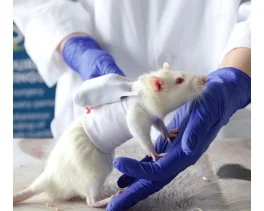Authors
N. Grillet, A. Pattyn, C. Contet, B. L. Kieffer, C. Goridis et al.
Lab
CNRS UMR 8542, Department of Biology, Ecole Normale Supérieure, Paris, France.
Journal
Molecular and Cellular Biology
Abstract
RGS proteins are negative regulators of signaling through heterotrimeric G protein-coupled receptors and, as such, are in a position to regulate a plethora of biological phenomena. However, those have just begun to be explored in vivo. Here, we describe a mouse line deficient for Rgs4, a gene normally expressed early on in discrete populations of differentiating neurons and later on at multiple sites of the central nervous system, the cortex in particular, where it is one of the most highly transcribed Rgs genes. Rgs4lacZ/lacZ mice had normal neural development and were viable and fertile. Behavioral testing on mutant adults revealed subtle sensorimotor deficits but, so far, supported neither the proposed status of Rgs4 as a schizophrenia susceptibility gene (by showing intact prepulse inhibition in the mutants) nor (unlike another member of the Rgs family, Rgs9) a role of Rgs4 in the acute or chronic response to opioids.
BIOSEB Instruments Used
Aron Test or Four Plates Test (LE830),Rotarod (BX-ROD)
Source :

 Douleur - Allodynie/Hyperalgésie Thermique
Douleur - Allodynie/Hyperalgésie Thermique Douleur - Spontanée - Déficit de Posture
Douleur - Spontanée - Déficit de Posture Douleur - Allodynie/Hyperalgésie Mécanique
Douleur - Allodynie/Hyperalgésie Mécanique Apprentissage/Mémoire - Attention - Addiction
Apprentissage/Mémoire - Attention - Addiction Physiologie & Recherche Respiratoire
Physiologie & Recherche Respiratoire




































 Douleur
Douleur Système Nerveux Central (SNC)
Système Nerveux Central (SNC)  Neurodégénérescence
Neurodégénérescence Système sensoriel
Système sensoriel Système moteur
Système moteur Troubles de l'humeur
Troubles de l'humeur Autres pathologies
Autres pathologies Système musculaire
Système musculaire Articulations
Articulations Métabolisme
Métabolisme Thématiques transversales
Thématiques transversales Congrès & Meetings
Congrès & Meetings 